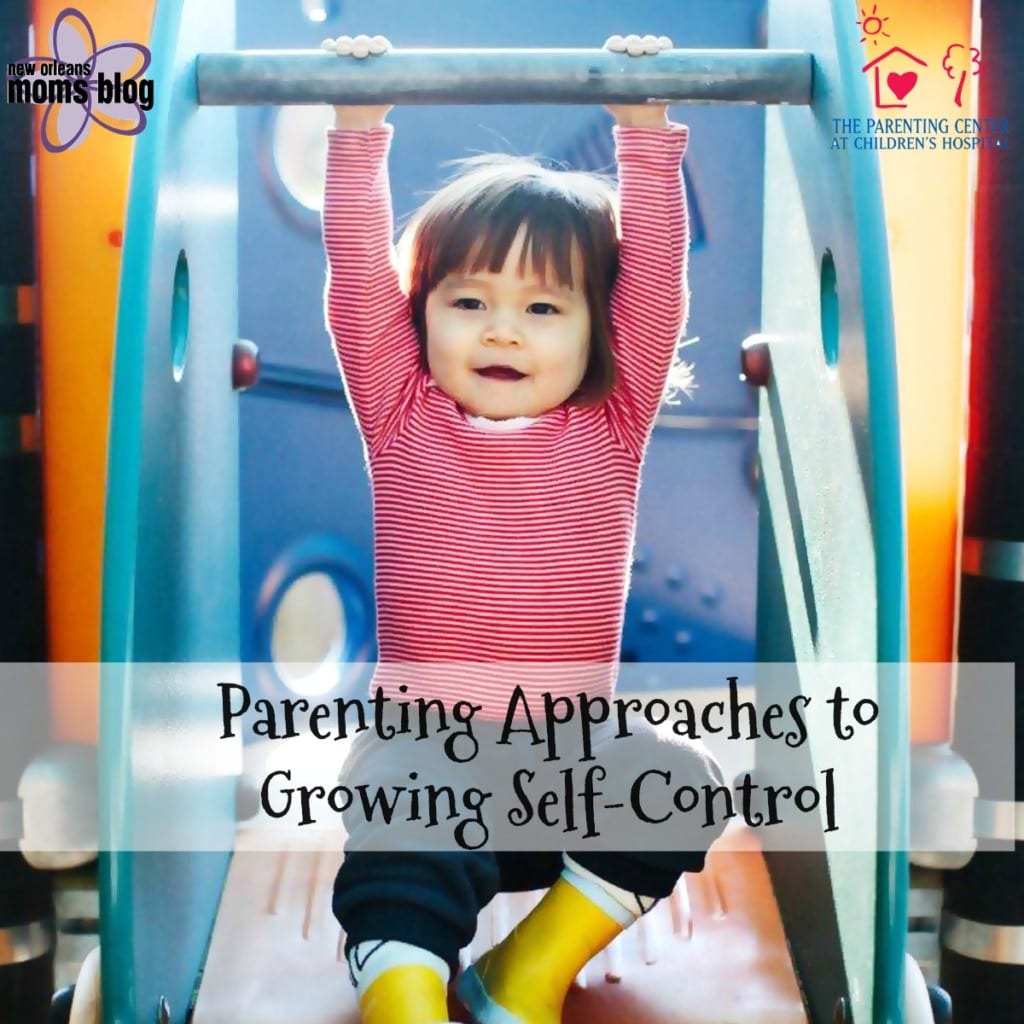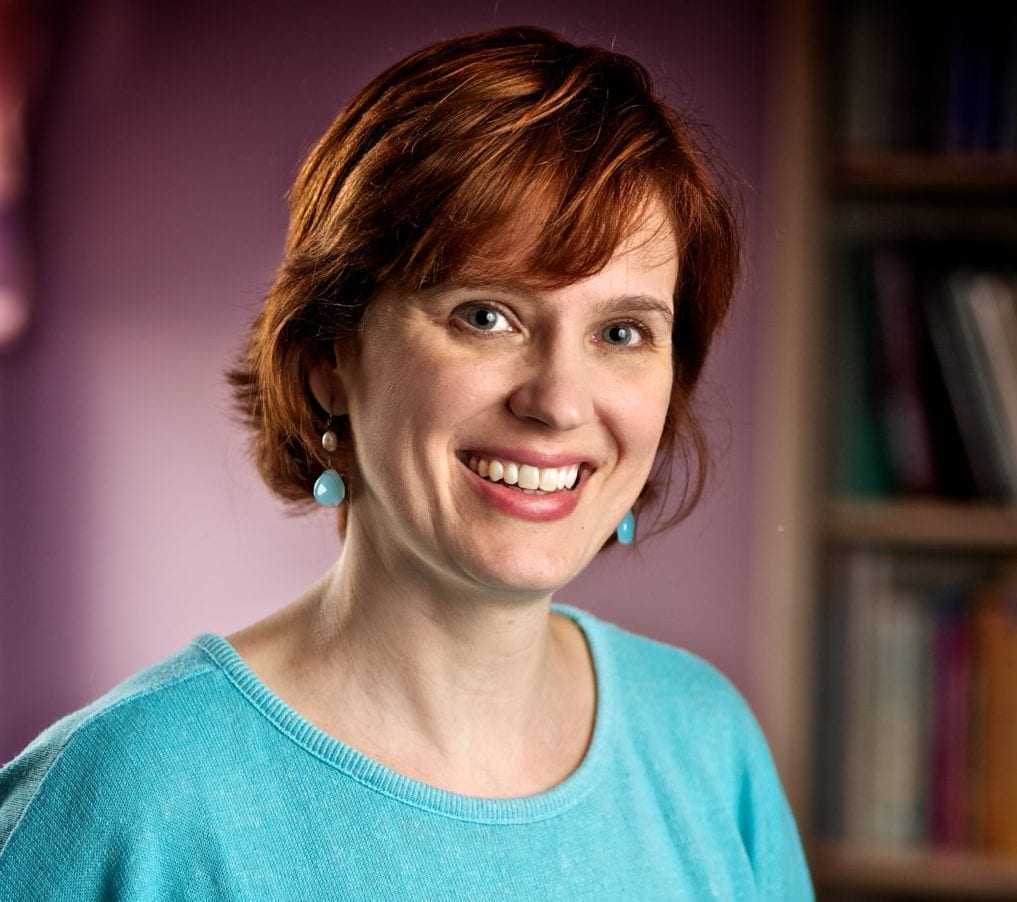Disclosure :: this post is sponsored by The Parenting Center.
Growing Self-Control
Self-control can seem elusive to parents who have spent time chasing young children in the park who aren’t ready to leave, scrubbed crayon marks off walls, and watched a toy launched across the room by a frustrated toddler. Many moms and dads can certainly find themselves hoping (praying?) for the next stage of development to ideally move a child into a place where rules are followed and parental expectations more easily met.
 It’s no wonder that parents sometimes worry about a child’s ability to self-regulate his emotions and behavior. Research suggests that the ability to stop and redirect one’s attention and control impulses has a far-reaching impact. The most famous of these studies is Walter Mischel’s marshmallow test, using a group of preschoolers who were offered an additional treat if they could refrain from eating the sweet for 15 minutes (fewer than a third could). As adolescents, the group who “passed” the test was found to be more likely to perform well in school, skillfully manage stress and frustration, focus attention and even avoid substance abuse. More recent research has found relationships between the ability to delay gratification and strong social skills, as well as goal-setting and persistence.
It’s no wonder that parents sometimes worry about a child’s ability to self-regulate his emotions and behavior. Research suggests that the ability to stop and redirect one’s attention and control impulses has a far-reaching impact. The most famous of these studies is Walter Mischel’s marshmallow test, using a group of preschoolers who were offered an additional treat if they could refrain from eating the sweet for 15 minutes (fewer than a third could). As adolescents, the group who “passed” the test was found to be more likely to perform well in school, skillfully manage stress and frustration, focus attention and even avoid substance abuse. More recent research has found relationships between the ability to delay gratification and strong social skills, as well as goal-setting and persistence.
What affects self-control?
But if you’re the parent of a young child who would have eaten the marshmallow in the first minute, don’t despair! There are many factors that affect self-control. Temperament, for example, is the way children are predisposed to interact with their environment. A high-energy, emotionally intense child may need more help with self-regulation than her more mellow peers. And remember that development can’t be rushed; many children under age 5 can’t always control themselves, especially when temptations are near and supervision is not. The prefrontal cortex, the part of the brain largely responsible for managing impulses, is not completely formed until we are in our 20s. That doesn’t mean we can’t expect a three-year-old to interact with other young children without grabbing and shoving, or start to remember to color on the paper instead of the table, but it does mean that it’s a process that requires some patience and support from adults as development unfolds.
So what else can parents do to help with this task?
Certainly a key ingredient is a warm, supportive relationship with a parent who provides some realistic and consistent expectations. Permissiveness can undermine self-regulation, as can harsh punishments. Routines are important to ensure children have basic physical needs met so they have the energy to manage their behavior (as anyone who’s dealt with a melting-down, exhausted preschooler knows). And don’t forget that children are always watching us: adults who model good self-control themselves are teaching important lessons about how to manage challenging emotions.
Other strategies include teaching skills by helping children learn to wait by finding something to do (playing I-spy, or pretend to be soldier standing at attention) or simply validating feelings when under stress (“I know it’s hard to wait when we’re ready to go home, but you’re doing a good job.”). Fun activities that strengthen a child’s self-control “muscles” include doing a puzzle or model together that may take a couple of days to complete, following a recipe step-by-step while cooking in the kitchen together, and old-fashioned games such as Simon Says or Red Light Green Light which encourage children to listen carefully. And having time for unstructured imaginative play with other young children is not only fun, it’s also an opportunity to learn to focus attention in order to direct actions, take turns and listen to one another.
The groundwork for self-regulation is laid even in the first year as patterns are established. Want to know more about parenting approaches that support the development of self-regulation? Be sure to check out our free classes for expecting parents and parent of babies, thanks to Kohl’s Cares. A list of 2017 Kohl’s Babies and Beyond Classes can be found on our website.
About Lisa Phillips

Lisa Phillips, MSW, LMSW, is a social worker and has been a Parent Educator at The Parenting Center at Children’s Hospital since 2001. She received her BA from Occidental College and her MSW from Tulane University. She is the mother of two teenagers.
















